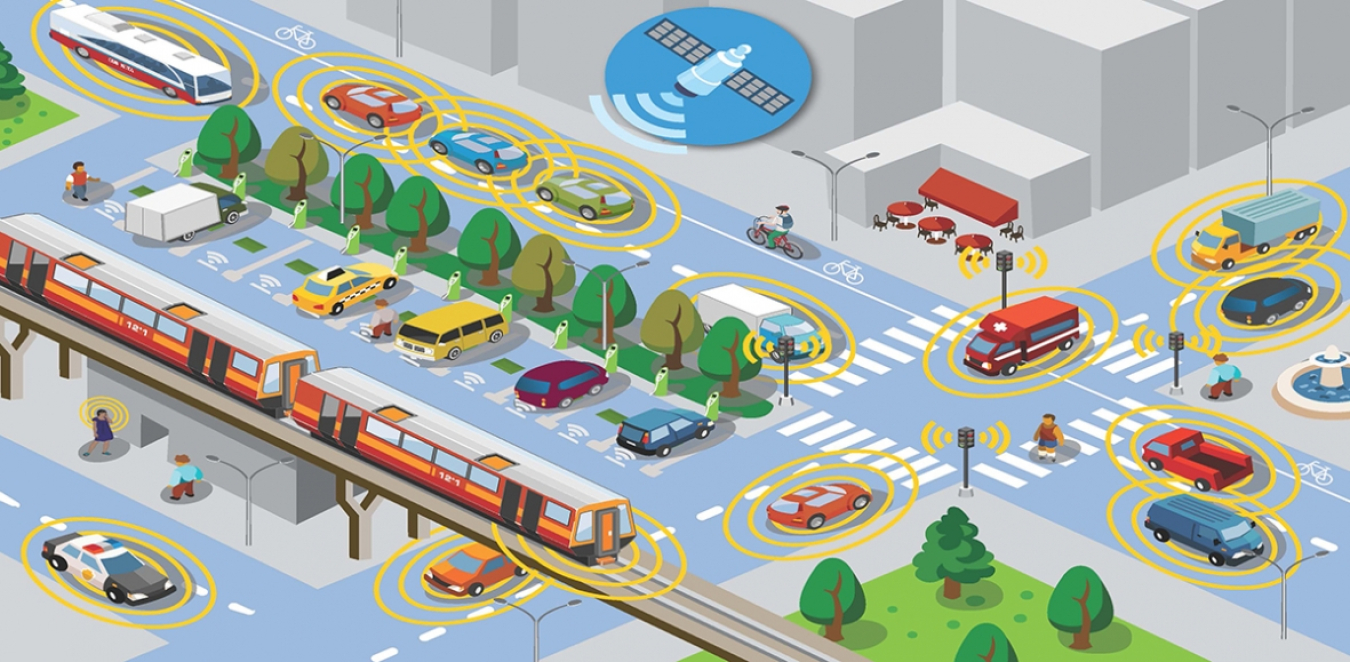Did you know, the Department of Energy’s National Laboratories are home to 32 of the fastest supercomputers on Earth?
January 9, 2018
DOE’s Vehicle Technologies Office commits $2.5M in FY2018 funds to Big Data and High Performance Computing Initiatives.
Did you know, the Department of Energy’s National Laboratories are home to 32 of the fastest supercomputers on Earth? Scientists and researchers at the national labs use these supercomputers to accelerate research by creating models from complex data sets. Now, two new Vehicle Technologies Office (VTO) initiatives - High Performance Computing for Mobility (HPC4Mobility) and Big Data Solutions for Mobility – will utilize the computing capabilities of the national labs to find solutions to real-world transportation energy challenges.
These initiatives are part of VTO’s Energy Efficient Mobility Systems (EEMS) Program. The EEMS Program’s mission is to conduct early-stage research at the vehicle, traveler, and system levels to create knowledge, tools, and solutions that increase mobility for individuals and businesses while improving transportation energy efficiency.
Big Data Solutions for Mobility
VTO’s EEMS program has launched a $2M multi-lab research initiative to develop new algorithms and big data tools that can model urban-scale transportation networks using real-world, near real-time data. The initiative will develop the data science approaches and HPC-supported framework for next-generation mobility systems modeling and operational analytics. This will deliver an understanding of transportation system efficiency opportunities that is not attainable with current approaches. Modeling informed by real-time data will allow transportation systems to respond to events such as accidents, weather, and congestion in such a way that optimizes the overall energy use of the system.
The Big Data initiative includes researchers from Lawrence Berkeley National Laboratory, Pacific Northwest National Laboratory, Argonne National Laboratory, and Oak Ridge National Laboratory as well as partners from academia and industry.
HPC4Mobility
HPC4Mobility will provide cities, companies, transportation system operators, and others that qualify, access to national laboratory resources, including supercomputing facilities, data-science expertise, and machine-learning capabilities. These partnerships aim to discover opportunities for energy efficiency increases in mobility systems.
This funding supports innovative and scalable HPC4Mobility projects. These projects will uncover opportunities for energy efficiency gains by applying high-performance computing resources to emerging transportation data sets. Initial VTO funding of $500K has been provided to the participating laboratories. Each selected external partner will provide in-kind cost-share contributions.
The first year “seed” projects for HPC4Mobility include:
- Lawrence Berkeley National Laboratory will work with the Los Angeles County Metropolitan Transportation Authority on HPC-enabled computation of demand models at scale to predict the energy impacts of emerging mobility solutions. Possible applications include modeling the impact of autonomous vehicles on transportation energy use and the hour-by-hour impact of ride hailing services on traffic congestion.
- Oak Ridge National Laboratory will work with GRIDSMART Technologies, Inc. on reinforcement learning-based traffic control approaches to optimize energy usage and traffic efficiency.
Sponsored by DOE’s the Office of Energy Efficiency and Renewable Energy, the High Performance Computing for Mobility (HPC4Mobility) Program is part of the larger HPC4 Energy Innovation Initiative, a Department-wide effort comprised of, the Office of Energy Efficiency and Renewable Energy, the Office of Fossil Energy, and the Office of Nuclear Energy.
To learn more about the Department's work with industry, academia, and community partners on advanced vehicle technologies, please visit the Vehicle Technologies Office website.
More by this author
-
 Deputy Assistant Secretary for Transportation & Fuels, Office of Energy Efficiency & Renewable Energy
Deputy Assistant Secretary for Transportation & Fuels, Office of Energy Efficiency & Renewable Energy

